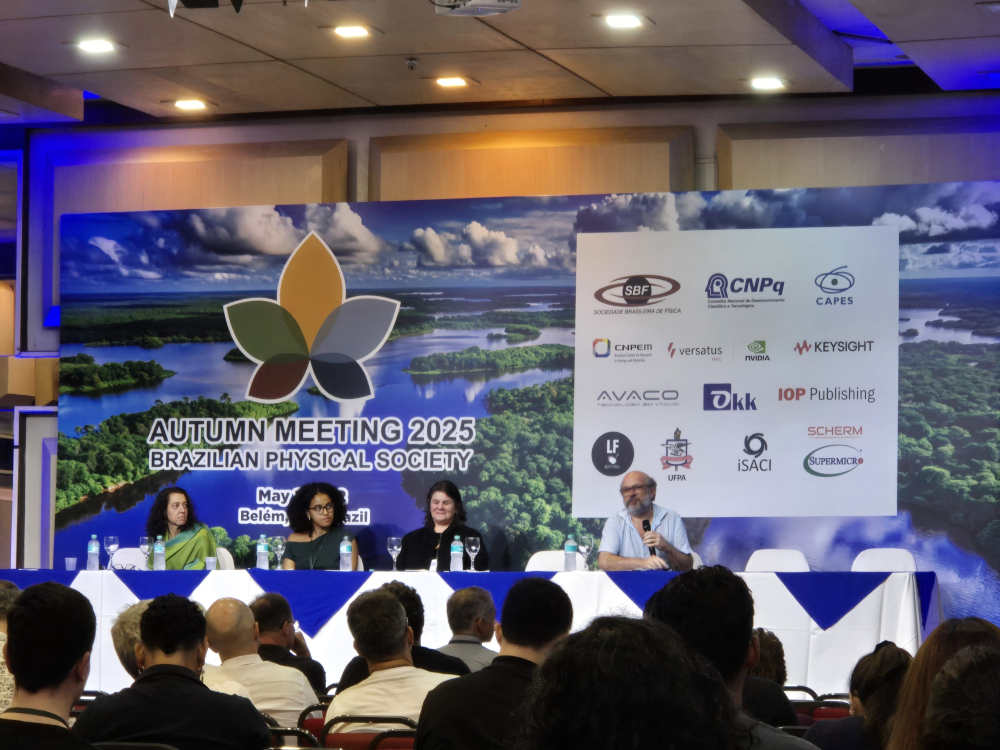
PhD student at the Department of Materials Physics and Mechanics of the Institute of Physics at USP (IFUSP/FMT), Pamela Costa Carvalho, supervised by Prof. Helena Petrilli (USP) and co-supervised by Prof. Angela Klautau (UFPA), participated as a distinguished guest in the plenary session "The challenges of postgraduate programs in Physics" during the Brazilian Physical Society (SBF) Winter School. She joined the session alongside Professors Luís Carlos Bassalo Crispino (Federal University of Pará - UFPA), Thereza Paiva (Federal University of Rio de Janeiro - UFRJ), and Kaline Coutinho (University of São Paulo - USP).
During the panel, Pamela sensitively and relevantly addressed the challenges faced by postgraduate students, bringing up an extremely important topic: students' mental health. She highlighted the need for actions and discussions about psychological well-being in postgraduate studies, given the increasing cases of mental health issues and demotivation among master's and doctoral students.
Pamela also shared aspects of her own journey, emphasizing how the opportunity to engage in applied research in partnership with industry (IBM) was essential in renewing her academic research motivation. According to her, experiences outside the traditional academic environment can be enriching, broadening horizons and bringing new incentives to students.
Another point in her speech was the importance for postgraduate students to broaden their perception of their own abilities and professional versatility. Pamela pointed out that, often, the academic path is seen as the only option, whereas, in reality, the skills acquired in postgraduate studies open doors to various professional trajectories.
Finally, Pamela advocated for the recognition of the labor rights of postgraduate students. Despite significantly contributing to national research, they are still treated only as students, without access to fundamental guarantees, such as social security contributions and labor protection.
Pamela Costa Carvalho's participation reinforces the commitment of IFUSP/FMT and its students in seeking a more humane and inclusive postgraduate environment, aligned with the real needs of students, and actively contributing to the development of the academic and scientific community.
